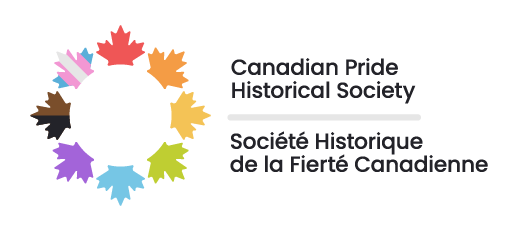September 30 is the National Day for Truth and Reconciliation. It’s a time to pause, reflect and learn about the legacy of Canada’s residential school system. For the Canadian Pride Historical Society, it’s also an opportunity to recognize a history that is often overlooked: the deep connection between Indigenous and 2SLGBTQIA+ communities through the role of Two-Spirit people.
The term Two-Spirit, created in 1990 at an Indigenous gathering in Winnipeg, is used by some First Nations, Métis and Inuit people to describe gender, sexual and spiritual identity in ways that existed long before colonization. It reflects the diversity of Indigenous cultures, many of which held space for individuals who embodied both masculine and feminine roles, or who carried unique responsibilities within their communities.
Colonial Disruption and Shared Erasure
These traditions were disrupted by colonialism. The residential school system, operated by churches and backed by the federal government, sought to erase Indigenous languages, ceremonies and identities. That suppression extended to the persecution of Two-Spirit people. What had once been sources of respect and belonging became targets of stigma and punishment.
This shared history of erasure is one point where Indigenous and queer experiences intersect. Just as queer Canadians have faced criminalization, invisibility and violence, Indigenous peoples have faced systemic attempts to suppress their cultures and ways of being. For Two-Spirit people, those burdens are doubled.
Resurgence and Solidarity
Today, many Two-Spirit leaders are reclaiming their place in their communities and in the broader 2SLGBTQIA+ movement. They are artists, activists, Elders and youth who speak to both resilience and resurgence. Their voices remind us that reconciliation isn’t only about acknowledging harm, but also about restoring traditions that colonialism tried to erase.
For non-Indigenous members of the 2SLGBTQIA+ community, solidarity begins with listening. Learning about the meaning of Two-Spirit identity and the diversity it represents is a step toward respect. Supporting Indigenous-led initiatives, attending events where Two-Spirit people are centred and making room for their stories within Pride spaces are concrete ways to act.
Relationships, Commitment, and Hope
Truth and reconciliation are not abstract ideas. They are lived through relationships; through the choices we make about who we uplift and how we remember the past. On this day, it’s important to honour survivors of residential schools and their families. It’s also important to recognize that Indigenous queer and trans people continue to carry histories that are both painful and powerful.
The Canadian Pride Historical Society is committed to preserving stories of 2SLGBTQIA+ Canadians, and that includes standing alongside Two-Spirit people whose histories are an integral part of this country. On September 30, we encourage everyone to wear orange, reflect on the truths of residential schools, and also learn more about the role of Two-Spirit people in Indigenous communities.
Reconciliation requires honesty, but it also requires hope. By acknowledging the intersections of our histories, we can work toward a future where Indigenous and 2SLGBTQIA+ voices are not just heard but celebrated.
###

Source: https://www.canada.ca/en/canadian-heritage/campaigns/national-day-truth-reconciliation.html
Article References :
Government of Canada. National Day for Truth and Reconciliation. https://www.canada.ca/en/canadian-heritage/campaigns/national-day-truth-reconciliation.html
National Centre for Truth and Reconciliation. Reports and Calls to Action. https://nctr.ca/records/reports/#trc-reports






